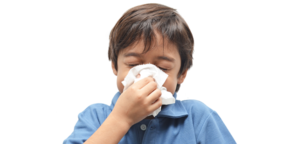Predisposing factors to depression
- Biological theories
- Genetics
- Hereditary factor may be involved
- Genetics
- Biochemical influences
- Deficiency of norepinephrine, serotonin, and dopamine has been implicated.
- Excessive cholinergic transmission may also be a factor.
- Neuroendocrine disturbances
- Possible failure within the hypothalamic-pituitary-adrenocortical axis
- Possible diminished release of thyroid-stimulating hormone
- Physiological influences
- Medication side effects
- Neurological disorders
- Electrolyte disturbances
- Hormonal disorders
- Nutritional deficiencies
- Other physiological conditions
- The role of inflammation
- Psychoanalytical theory
- A loss is internalized and becomes directed against the ego.
- Learning theory
- The individual who experiences numerous failures learns to give up trying.
- Object loss theory
- Experiences loss of significant other during first 6 months of life
- Feelings of helplessness and despair
- Early loss or trauma may predispose client to lifelong periods of depression.
- Cognitive theory
- Views primary disturbance in depression as cognitive rather than affective.
- Three cognitive distortions that serve as the basis for depression.
- Negative expectations of the environment
- Negative expectations of the self
- Negative expectations of the future




